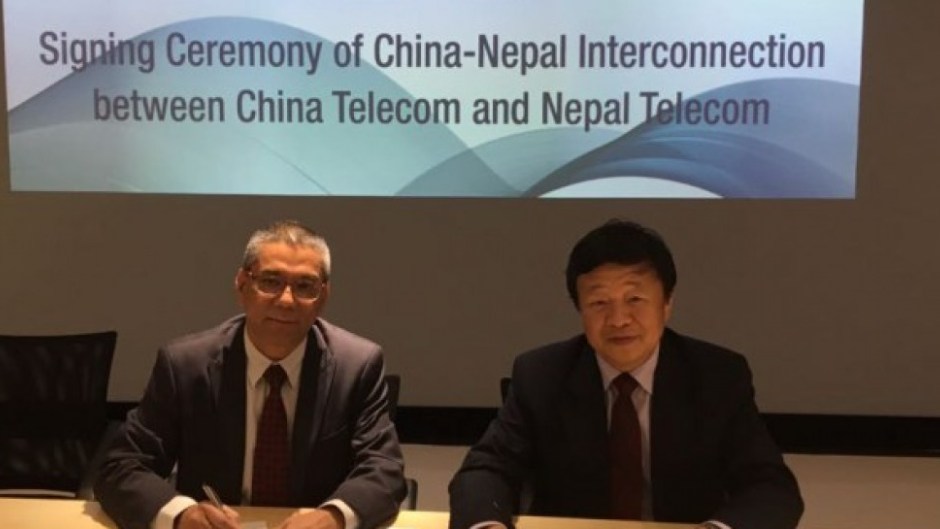Nepal Signs Telecom Agreement with China, Breaks India's Monopoly
ARUN BUDHATHOKI

KATHMANDU: Nepal excitingly awaits the internet revolution beginning here from August 1. According to reports, Nepal will be connected with Hong Kong servers, boosting the landlocked nation’s internet speed and reducing the cost. However, Nepal’s only internet service provider India has demonstrated mixed feelings toward this new development as its monopoly here will now be challenged by China.
Nepal Telecom and China Telecom had signed an agreement in December 2016 to build internet ties. The project was delayed due to several factors, including, an avalanche in Tibet region where laying of optical fibers had to be discontinued. But now that it’s fixed Nepal will connect with China via Jailong gateway. Though this new bond between Nepal and China has been a landmark moment, there are those in India who believe that it might pose a security threat. This although stems from paranoia per se.
India’s suspicion over Chinese internet is justifiable in the sense that to this date it has boundary problems with China. To India—China is not an ally—and for Nepal, both nations are equally important. Nepal can’t compete with either but can only utilize both nations to make itself strong in the coming days. And in that sense, the internet is important as it opens new opportunities for the Himalayan nation. It also gives the hope that Nepal will be quickly digitalized and help to build a strong democratic society build on the foundations of digital rights.
It’s not debatable that the internet service providers of mainland China and India fail to provide quality internet speed. According to an article by The Telegraph, Hong Kong enjoys the third fastest internet in the world, whereas China ranks at 111.
On the other hand, Hong Kong boasts of having the second fastest internet in the world. And Nepal is getting the internet from HK servers and one can only imagine how the nation will be transformed if it receives similar bandwidth or close to its range. It is, however, not clear as what bandwidth Nepal will receive. Moreover, Nepal will now have the option to buy bandwidth not only from Chinese service providers but from other nations that are connected to Hong Kong servers.
How long should Nepal depend on India’s internet service? As a sovereign nation, it has every right to do business with whichever country without undermining its relationship with the southern neighbor. China and India do not enjoy the same openness in Internet freedom like Nepal. It’s a known fact that both nations have been indulging in censorship whereas Nepal has experienced censorship only in 2005. Other than that, Nepal is an open society and likes its Internet freedom. And an average Nepali wouldn’t manage to survive either in Chinese or Indian censorship. We just love our freedom in cyberspace.
Type ‘Tiananmen Square Massacre’ or ‘Ummah.com’ in Google Nepal and you can access both. Nepal government hasn’t banned the Internet to few groups like India has done to Darjeeling and Jammu & Kashmir denizens. Nepal government doesn’t filter keywords nor has any firewall installed like its neighbors. However, incidents have come to light where authorities have sought people who defame state actors. It happens but it’s rare. Nepali authorities are busy tackling cybercrime instead.
Moreover, I still can speak my mind on social platforms but I would be wary of doing so in either China or India. This should be understood by our neighbors and Nepal left to enjoy its internet boom.
What the agreement doesn’t say is whether the Hong Kong servers will be free from spying since China Telecom is essentially a mainland company. And it is understandable hy the Indian establishment is worried about the internet incursion.
Nepal must play the equidistance policy and not take any sides or allow any anti-India or anti-China activities on its soil. Nepal needs to prosper and it needs both neighboring nations irrespective of their quarrels. It’s time that Nepal becomes independent and developed—in the long run—it might benefit the whole region.
Nepal might become the next Hong Kong for India and China citizens who long to have a taste of cyber freedom and internet speed.



